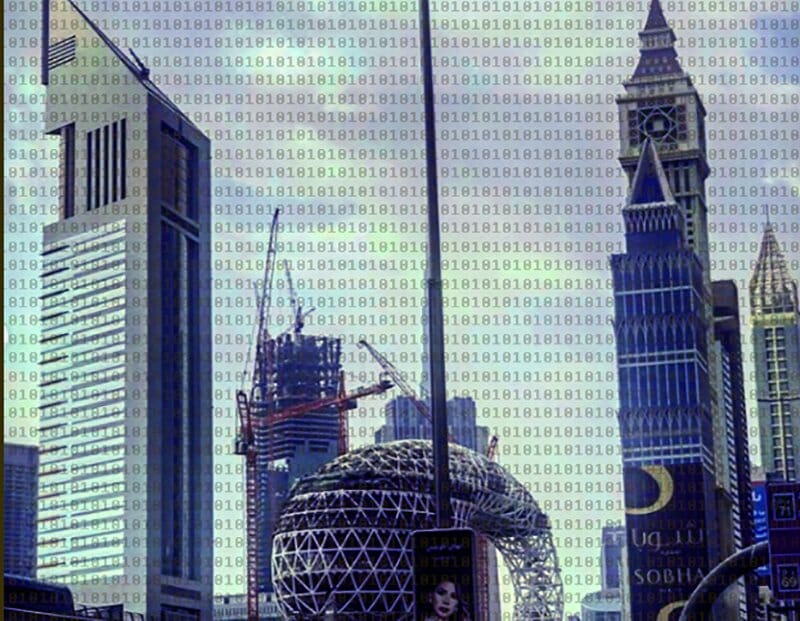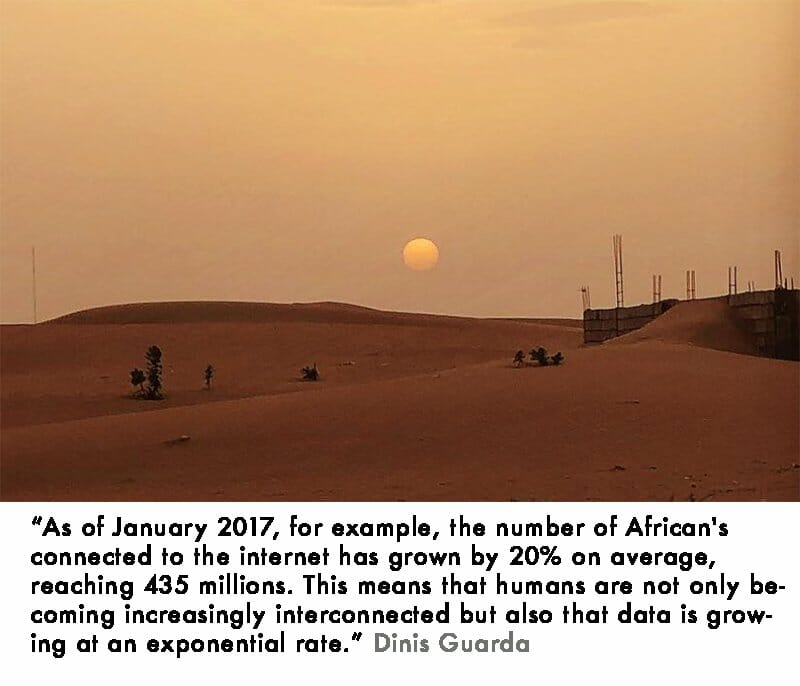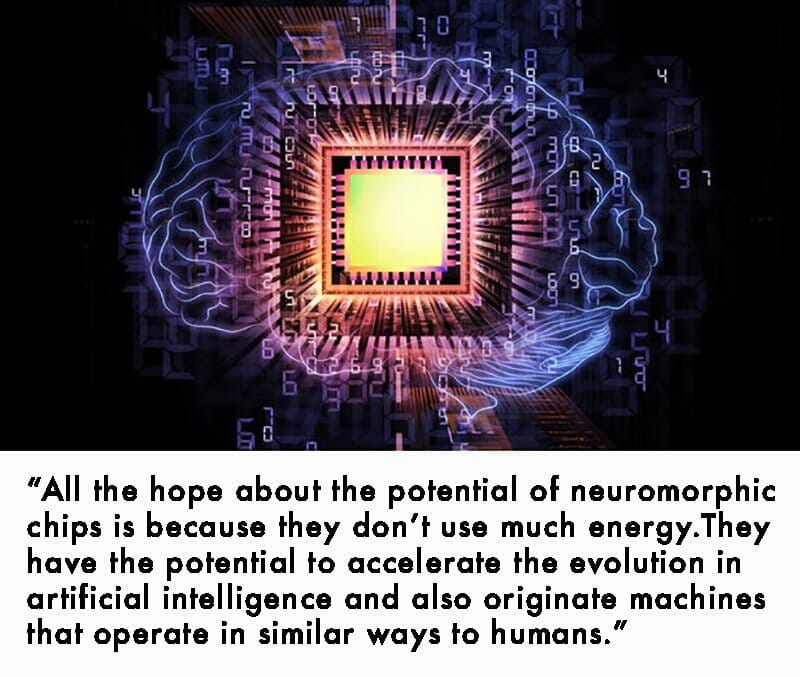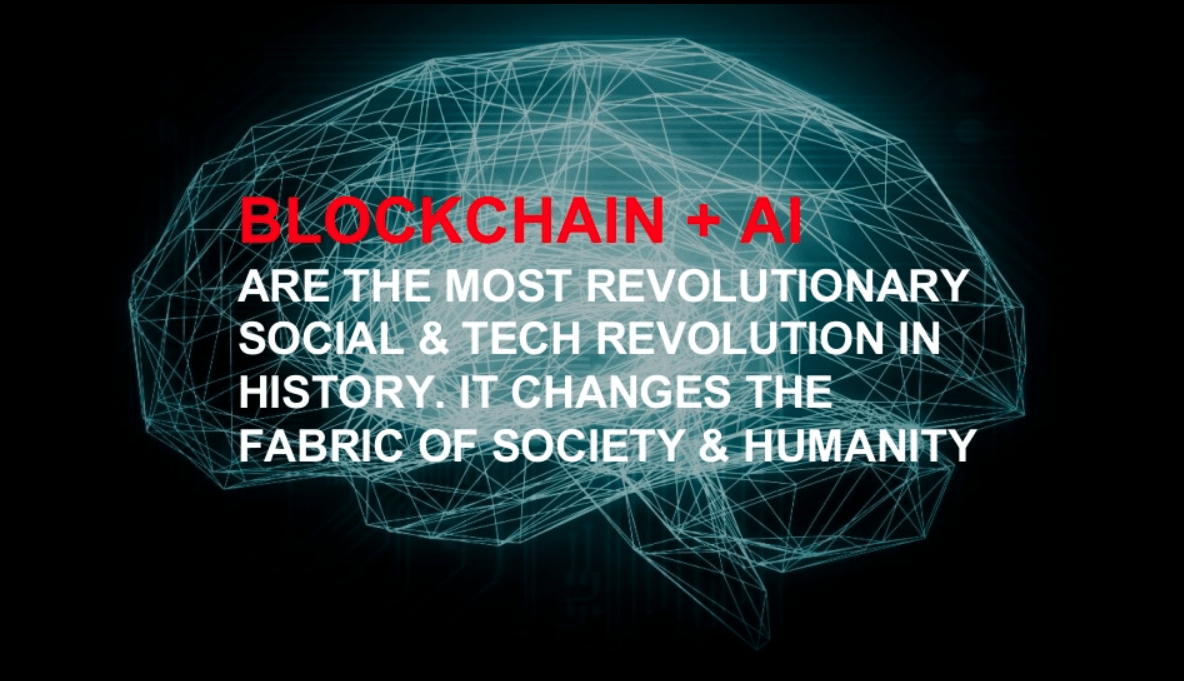
The ones old enough to remember, might recall the times when image communication seemed a far distant impossible reality… a futuristic dream that would never be achieved! Now, we can have a voice call with someone who is climbing the Himalayas, while sitting in the comfort of our home, through Skype, Whattsapp, Zoom, Signal etc etc etc…
In the last few decades, we have seen what seems like reality surpassing imagination. Incredible technological advancements are happening at such quick pace that one is almost incapable to keep up with all the innovations. And one of the most radical inventions that is promising a tsunami in our lives is AI.
The tsunami AI, has been out there actually for a long time. It has been discreetly operating and being developed in research and development labs located in Universities and Tech Corporations, scattered in the world. Over the past decade it has gained momentum, and is now applied across disparate industries ranging from healthcare to manufacturing to retail and beyond.
AI raises hopes yes, but also fears. If it can help immensely the world it can also bring us to the edge of catastrophe, if one considers that AI can eventually surpass humans in terms of intelligent cognition. Will the scenario of machines overturning humans become a reality ? Or will we have what some call a “friendly AI?” What explains this intense period of development of AI over the past decade, is the exponential growth of Big Data! With such extreme quantities of data being produced all the time, we urgently need a system to organize it and secure it, in a way that some of the threats inherent to AI can be prevented. Possibly blockchain can be the underlying architecture, sustaining it and securing AI. These are some of the challenges that will be talked about in this article.
The Coming of Age of Big Data
The quick evolution of AI over the past decades is based on the increased possibility of collecting and storing data. The quantity and quality of digital data and information created and stored by humans is now several quintillion bytes of data. The current human population is around 7.7 billion, and from these more and more people get connected to the internet everyday. As of January 2017, for example, the number of African’s connected to the internet has grown by 20% on average, reaching 435 millions. This means that humans are not only becoming increasingly interconnected but also that data is growing at an exponential rate.

Its this data that feeds electronic systems, endowed with the task of finding patterns, and useful information. When we use our phones and search for the nearby restaurant on city mapper, its data… and AI… that is helping us.
One can say that we are in a process of digitalisation of everything, from our use of data to our DNA. We need to become deeply aware that we are profoundly intertwined with the data we produce, while using tech platforms in our phones, computers, apps. This happens to each of our individual self, and paradoxically it happens also to companies, businesses, and financial organisations that manage our data: For businesses, big data a is the new gold rush.
But this is just the beginning. In the future, there will be even the possibility of integrating our DNA with objects around us. Human connectivity is also increasing, and the amount of data that we are giving to machines is also growing very rapidly to unimaginable quantities. This data is being entered into systems, and machines are being programmed to learn from it. Machine learning systems, for example, look for patterns, and learn how they should respond to those. Each learning step makes them more intelligent.
On the other hand the global economy is not digitalised at all. A schism in the world? The one who is digitised and the one which is not? Or just more of the same contrasts we are so used to ?
Data is the Fuel of AI
Extreme quantities of data is what fuels AI. But defining Artificial Intelligence is not an easy task. It can be seen through different iterations, concepts and variations.
Taken to its straightforward definition, artificial Intelligence is the capability of a machine to imitate intelligent human behaviour. We don’t need to think of complicated robots to understand or picture AI. All things that augment “artificially” human intelligence, are part of AI. How our phones work, is perfect to illustrate how AI advances and empowers all areas of society. Smartphones have been developing through a whole set of operations of algorithms that are improved through feedback loops, using and analysing the data gathered by their users.
So at the core of AI evolution is big data, better algorithms and innovations in terms of computer hardware.
Computer hardware research has evolved quite significantly recently as well. What guides the research is to find ways to use more energy efficient chips in computers, that can store more data. These are named neurotrophic chips, because they are inspired by the way biological brains works. They are designed to access and interpret sensory data such as images and sound and to respond to changes in that data, in an organic adaptable way, that is not specifically programmed.
All the hope about the potential of neuromorphic chips and their low use of energy is because they can have the potential to accelerate the speed of evolution in artificial intelligence and also originate machines that operate in similar ways to humans.

Quantum computing, has also been developing lately. Quantum computers performs a type of computing that is different from binary digital electronic computers, which are based on transistors. Common digital computing uses data encoded into binary digits (bits), each of which is always in one of two definite states (0 or 1). Quantum computation, on the other hand, uses quantum bits, which can be in superpositions of states. This enables them to be way faster and capable to deal with extreme volumes of complex data, thus eventually becoming able to perform massive simulations – like the ones done by physicists at CERN’s Hadron collider.
Blockchain as the Logical Infrastructure for AI/IoT
As we have seen, we are not only producing more and more data everyday but will also need in the near future, quantum computing to work out what to do with those gigantic quantities of data. Greater sizes of data implies better and more accurate information and calculations, but it is mandatory as well to build a storage infrastructure capable of holding that data safely. New data storage systems, such as blockchain can become the much needed solution to solve that problem. Blockchain is basically a distributed ledger technology. In other words, the blockchain stores and distributes big data in a network of nodes, in a format which is theoretically transparent, secure and immutable. In essence, the blockchain functions as a gigantic super-database. With this kind of data-storage capacity, the blockchain can be seen as positioned to be the next architectural structure of the Internet of the future, which will be dealing with huge amounts of data everyday.
Blockchain is still at its infancy though, but if we bear in mind, that even if its seems we have gone a long road ( and we did) the world is far from being fully digitised, we can see how there is scope for expansion.

AI: Dangers and Opportunities
AI’s potential is remarkable. If it works in cooperation with blockchain and big data, it can really take off and deliver the positive outcomes it has been promising for a while. However, while there is no doubt that artificial intelligence, in its optimal scenario, can bring great benefits to the human race and the earth, as it would free up humans from repetitive, monotonous tasks, allowing them to have more time to develop themselves creatively and socially, one needs to bear in mind that it brings risks as well.
This risks are particularly apparent and worrisome when considering factors like security, particularly if we see AI through the point of view of something that is increasingly autonomous, and designed to be self sufficient, and learn without the help of human intervention and guidance.
We need to think about what we want for humanity and start planning for it, before it is too late, because its actually our decisions the ones who influence how AI will evolve. There is a particular worst-case scenario for AI that is quite frightening (but that fear needs to be taken with a healthy doses of skepticism, people are always into dread scenarios that in the end never happen). That fear has a name: technological singularity.
Getting Ready For The Tsunami: AI Evolution, Blockchain and Technological Singularity Part 2
Getting Ready For The Tsunami: AI Evolution, Blockchain and Technological Singularity Part 3

Dinis Guarda is an author, academic, influencer, serial entrepreneur, and leader in 4IR, AI, Fintech, digital transformation, and Blockchain. Dinis has created various companies such as Ztudium tech platform; founder of global digital platform directory openbusinesscouncil.org; digital transformation platform to empower, guide and index cities citiesabc.com and fashion technology platform fashionabc.org. He is also the publisher of intelligenthq.com, hedgethink.com and tradersdna.com. He has been working with the likes of UN / UNITAR, UNESCO, European Space Agency, Davos WEF, Philips, Saxo Bank, Mastercard, Barclays, and governments all over the world.
With over two decades of experience in international business, C-level positions, and digital transformation, Dinis has worked with new tech, cryptocurrencies, driven ICOs, regulation, compliance, and legal international processes, and has created a bank, and been involved in the inception of some of the top 100 digital currencies.
He creates and helps build ventures focused on global growth, 360 digital strategies, sustainable innovation, Blockchain, Fintech, AI and new emerging business models such as ICOs / tokenomics.
Dinis is the founder/CEO of ztudium that manages blocksdna / lifesdna. These products and platforms offer multiple AI P2P, fintech, blockchain, search engine and PaaS solutions in consumer wellness healthcare and life style with a global team of experts and universities.
He is the founder of coinsdna a new swiss regulated, Swiss based, institutional grade token and cryptocurrencies blockchain exchange. He is founder of DragonBloc a blockchain, AI, Fintech fund and co-founder of Freedomee project.
Dinis is the author of various books. He has published different books such “4IR AI Blockchain Fintech IoT Reinventing a Nation”, “How Businesses and Governments can Prosper with Fintech, Blockchain and AI?”, also the bigger case study and book (400 pages) “Blockchain, AI and Crypto Economics – The Next Tsunami?” last the “Tokenomics and ICOs – How to be good at the new digital world of finance / Crypto” was launched in 2018.
Some of the companies Dinis created or has been involved have reached over 1 USD billions in valuation. Dinis has advised and was responsible for some top financial organisations, 100 cryptocurrencies worldwide and Fortune 500 companies.
Dinis is involved as a strategist, board member and advisor with the payments, lifestyle, blockchain reward community app Glance technologies, for whom he built the blockchain messaging / payment / loyalty software Blockimpact, the seminal Hyperloop Transportations project, Kora, and blockchain cybersecurity Privus.
He is listed in various global fintech, blockchain, AI, social media industry top lists as an influencer in position top 10/20 within 100 rankings: such as Top People In Blockchain | Cointelegraph https://top.cointelegraph.com/ and https://cryptoweekly.co/100/ .
Between 2014 and 2015 he was involved in creating a fabbanking.com a digital bank between Asia and Africa as Chief Commercial Officer and Marketing Officer responsible for all legal, tech and business development. Between 2009 and 2010 he was the founder of one of the world first fintech, social trading platforms tradingfloor.com for Saxo Bank.
He is a shareholder of the fintech social money transfer app Moneymailme and math edutech gamification children’s app Gozoa.
He has been a lecturer at Copenhagen Business School, Groupe INSEEC/Monaco University and other leading world universities.












